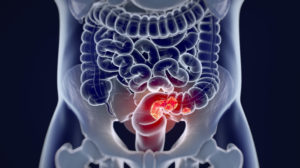In previous studies, like the CALERIE study by Duke University, calorie restriction (CR), without malnutrition, has been associated with an increased lifespan. Still, the explanation for this mechanism remains subject to debate. In fact, it is currently unknown whether the rise in ketogenesis and fatty acid oxidation accompanying caloric restriction has a determining role in prolonging the lifespan.
On the other hand, low-carbohydrate diets (LCDs) induce a shift in metabolism away from carbohydrates toward fatty acid oxidation. Among all, the ketogenic diet (KD) (or keto diet) – the most extreme type of low-carbohydrate diet, is believed to resemble the key characteristics of caloric restriction as it promotes an anti-inflammatory metabolic state and increases levels of ketone bodies in mice studies.
Despite these similarities, there is a lack of information on lifespan and healthspan outcomes of animals that maintained long-term on these diets.
Read the original publication of this study here: [ A ketogenic diet extends longevity and healthspan in adult mice ]
This study aimed to examine the influence of low-carbohydrate diets or keto diets on longevity and healthspan in mice.

A ketogenic diet extends longevity and healthspan in adult mice
Scientists assigned a low-carbohydrate, keto, or control diet to C57BL/6 mice when they were 12 months old. The mice were tested for physiological function after 1 or 14 months of dietary intervention, using the hanging wire and grip strength tests. The study also measured body weight and composition, several serum biomarkers, energy expenditure, and physical activity to investigate the physiologic and metabolic changes induced by the three types of diets.
Results demonstrated that lean mass increased with age in mice consuming the control and LCD. At the same time, it was significantly lower in the KD mice. In addition, mice adopting LCD had an extra amount of fat mass compared to control or KD mice.
KD subjects also had an increased median lifespan of 13.6% compared to the control diet group. In aged mice, KD preserved memory, motor function, endurance, and muscle mass in subjects.
KD accelerated protein acetylation levels and regulated mTORC1 signaling in a tissue-dependent manner.
Takeaways:
- A keto diet increases longevity and healthspan in lean mice compared to a standard low-carbohydrate or control diet.
- Results show preservation in physiological function, memory, and muscle mass in aged mice consuming the keto diet, which prompts a potential role of diets in anti-aging strategies.
You can read the original publication of this study here: [ A ketogenic diet extends longevity and healthspan in adult mice ]
Reference:
- https://www.ncbi.nlm.nih.gov/pmc/articles/PMC5609489/
- https://www.ncbi.nlm.nih.gov/pmc/articles/PMC5605815/
- https://www.pnas.org/content/117/11/6170
Additional articles studying the connection between longevity and calorie restriction in humans:





